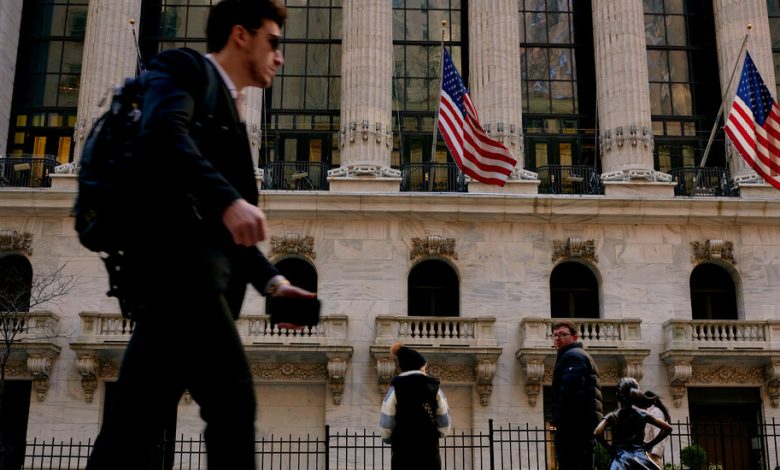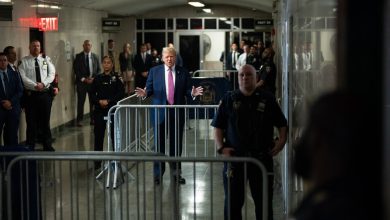Wall Street Is Already Placing Bets on the Biden-Trump Rematch

Nine months ahead of the presidential election, investors are already thinking about how financial markets might respond to the outcome of the vote, and how they should trade to prepare for it.
Stock markets have soared to record highs in recent weeks, while government bond yields, which underpin interest rates for consumers and companies, are down from a recent peak in October. Despite the uncertainty of making political predictions, money managers are already contemplating how the election could alter the mood in markets.
Red wave, blue wave or divided government?
The combination investors see as the most likely to spur a shift in financial markets in November — and therefore the scenario that traders are spending the most time thinking about — is a so-called red wave, where former President Donald J. Trump returns to the White House along with a Republican sweep of Congress.
When Mr. Trump won the presidential election in 2016, and Republicans maintained control of the House and Senate, expectations of lower taxes and a looser regulatory environment juiced growth expectations and major stock indexes rose. Those policies, which cut the government’s revenue and raised its borrowing needs, also propelled a sharp rise in government bond yields.
In the event of a red-wave, investors expect something similar. “I think directionally you will see something that rhymes with it,” said Erik Weisman, chief economist and a portfolio manager at MFS Investment Management.
A blue wave — a Democratic sweep of Congress and President Biden’s re-election — is seen as less likely, and is therefore getting less attention, though that outcome could also lead to increases in government spending and higher borrowing costs.




